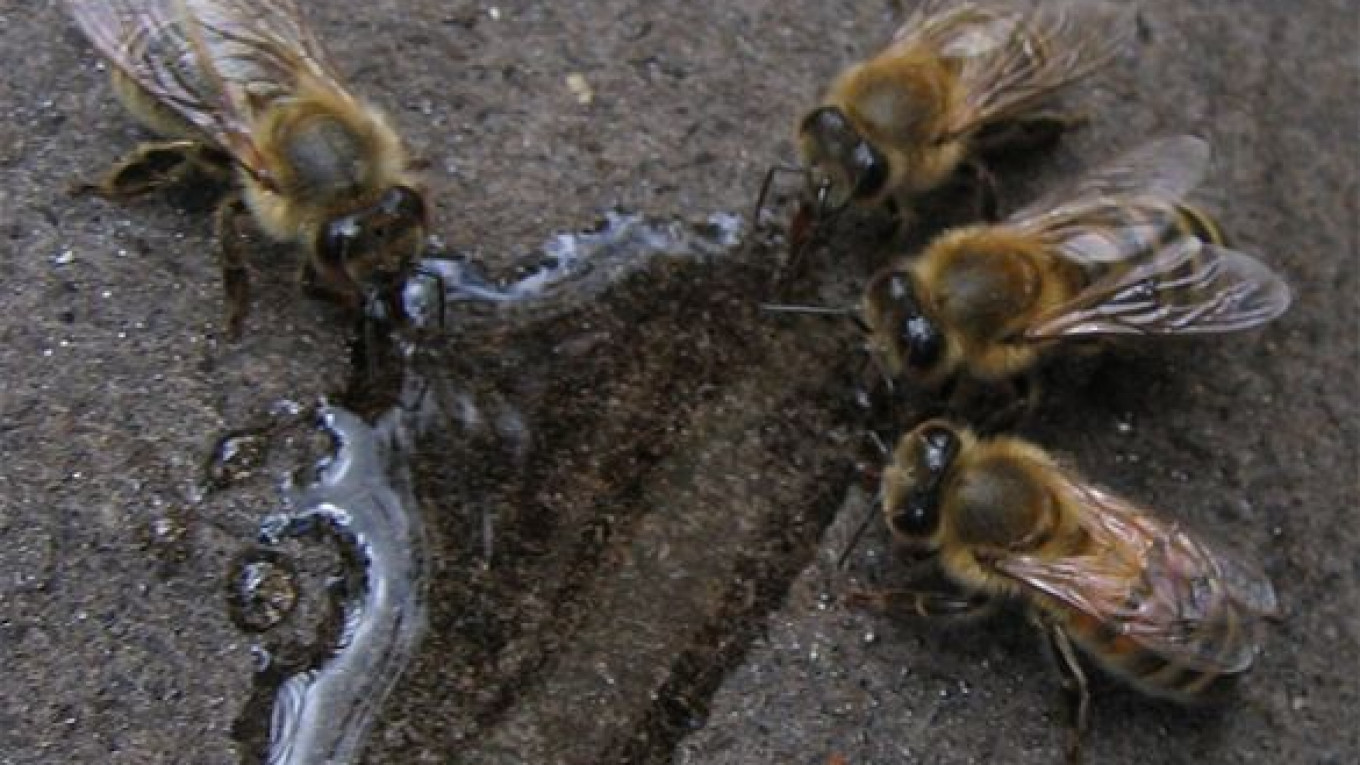Russian bees are the latest buzzword among American beekeepers who see the hardy honey-makers as potential saviors against a mysterious blight that has decimated the U.S. bee population.
Originally from the coastal Primorsky in Russia's Far East, Russian bees are twice as resistant to varroa mites, tiny parasites that can infest beehives and were fingered in a report released in May by the US Department of Agriculture (USDA) and the Environmental Protection Agency (EPA) as the single greatest cause of the dramatic decline in the U.S. honeybee population, which has fallen from 6 million colonies in 1947 to 2.5 million today.
Russian bees have been exposed to varroa mites for much longer than other strains of honeybees, and they have probably built up resistance to the killer parasite, according to another study conducted at North Carolina State University (NCSU).
The Russian bees also tend to produce as much honey as standard bee stocks, if not more, the NCSU report said.
"Russian bees will fly when it's still cold out — 38 degrees Fahrenheit (3 degrees Celsius) — before a lot of other bees will," said Ruth Seaborn, who runs Wolf Creek Apiaries in Tennessee, where the bees have Russian genes. "That means they will get out and pollinate a garden or crop field before other bees get busy."
New England resident April Peavey, who started a bee colony three weeks ago after she noticed that there were no honeybees in her garden, told RIA-Novosti that she ordered her bees from Wolf Creek Apiaries in Tennessee because of their Russian genes.
"I wanted something that could withstand the cold New England winters," Peavey told RIA-Novosti.
"I started a colony to pollinate my garden because, when I was growing up, there were always bees around, and since I've been keeping a garden for seven years, I've noticed that there aren't any bees around anymore," Peavey said.
Beekeepers in the United States began reporting unexplained losses of honeybees starting in 2006, which was blamed on a condition that has been dubbed Colony Collapse Disorder (CCD).
Since CCD was first reported, the blight is said to have killed tens of millions of honeybees, which are crucial to U.S. agriculture because they pollinate scores of crops, from almonds to zucchini.
Almonds alone are a $4 billion cash crop in the United States, and if the honeybee population continues to decline, the USDA says it is not "confident in our ability to meet the pollination demands of U.S. agricultural crops."
A Message from The Moscow Times:
Dear readers,
We are facing unprecedented challenges. Russia's Prosecutor General's Office has designated The Moscow Times as an "undesirable" organization, criminalizing our work and putting our staff at risk of prosecution. This follows our earlier unjust labeling as a "foreign agent."
These actions are direct attempts to silence independent journalism in Russia. The authorities claim our work "discredits the decisions of the Russian leadership." We see things differently: we strive to provide accurate, unbiased reporting on Russia.
We, the journalists of The Moscow Times, refuse to be silenced. But to continue our work, we need your help.
Your support, no matter how small, makes a world of difference. If you can, please support us monthly starting from just $2. It's quick to set up, and every contribution makes a significant impact.
By supporting The Moscow Times, you're defending open, independent journalism in the face of repression. Thank you for standing with us.
Remind me later.






